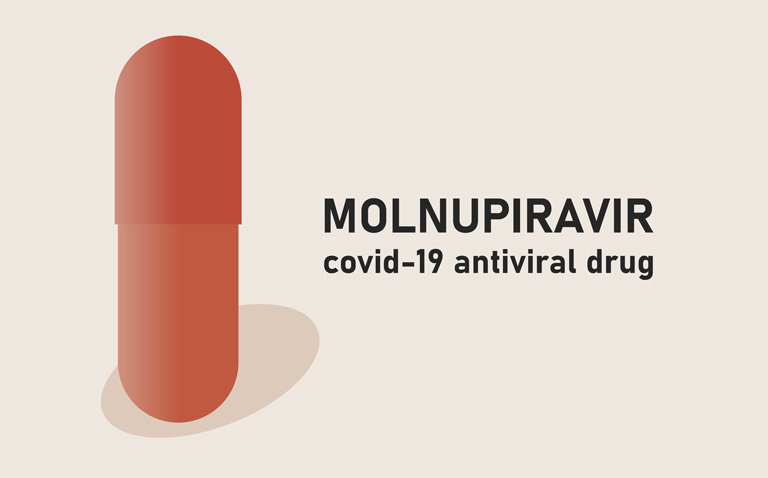Molnupiravir treatment initiated within 5 days of symptom onset in unvaccinated individuals with COVID-19 halved the risk of hospitalisation
The use of oral molnupiravir treatment within 5 days of COVID-19 symptom onset, led to a 50% reduction in the risk of hospitalisation for any cause of death among unvaccinated patients. This was the main finding of a study by the MOVe-OUT group which was supported by the manufacturer of the drug, Merck Sharp and Dohme.
Molnupiravir is a small-molecule ribonucleoside pro-drug of N-hydroxycytidine (NHC) and which has been shown to inhibit the influenza virus and is phosphorylated in vivo and incorporated into viral RNA, rendering the virus non-infectious. Early trial data suggested that the drug was efficacious and safe in patients infected with COVID-19 which formed the basis for the current MOVe-OUT trial.
For the Phase II-III trial, non-hospitalised patients with mild or moderate, laboratory confirmed COVID-19, symptom onset of no more than 5 days and at least one risk factor for more severe disease, were enrolled in the study. Risk factors included age (> 60 years), active cancer, chronic kidney disease, COPD, obesity, diabetes or serious heart conditions such as heart failure and coronary artery disease. Patients were excluded where there was an anticipated need for hospitalisation (due to COVID-19) within the next 48 hours.
Those enrolled were randomised 1:1 to molnupiravir treatment (800 mg) twice daily for five days or identical placebo. The primary efficacy endpoint was the incidence of hospitalisation for any cause, which the researchers defined as > 24 hours of acute hospital care or death through to day 29. The researchers also included a primary safety outcome as the incidence of adverse events.
Findings
A total of 1433 participants with a median age of 42 (53.6% female) were assigned to molnupiravir treatment (716) or placebo. Overall, 99.4% of these individuals had at least one risk factor for severe COVID-19, most commonly obesity (73.7%), age > 60 (17.2%) and diabetes (15.9%) with disease severity classed as mild in more than half (55.2%) of all cases.
The percentage of patients meeting the primary endpoint was 7.3% (molnupiravir) and 14.1% (placebo), a treatment difference of 6.8% (95% CI -11.3 to – 2.4, p = 0.001). Patients receiving molnupiravir had a lower risk of hospitalisation or death through to day 29 (6.8% vs 9.7%). There was one death reported in the molnupiravir group and 9 in the placebo group, all of which were considered to be COVID-19-related.
In terms of safety, 30.4% vs 33% of participants in the molnupiravir treatment arm vs placebo, experienced > 1 adverse event including diarrhoea, nausea and dizziness.
Since the trial was undertaken among unvaccinated participants, the potential value of the drug in preventing breakthrough infections could not be evaluated. Nevertheless, authors concluded that molnupiravir treatment was effective for the treatment of COVID-19 and that it did not appear to have any major safety concerns.
Citation
Bernal AJ et al. Molnupiravir for Oral Treatment of Covid-19 in Nonhospitalized Patients N Engl J Med 2021










